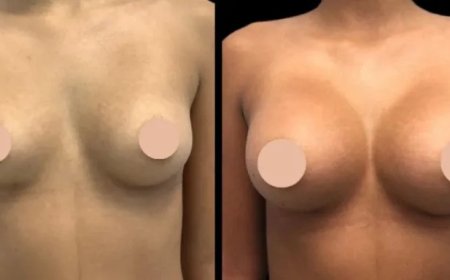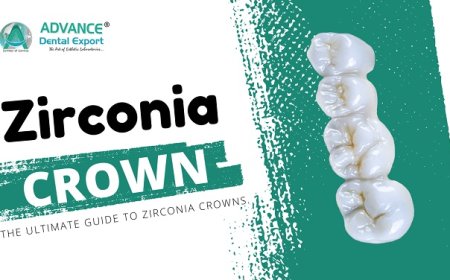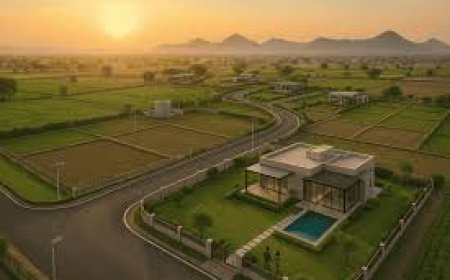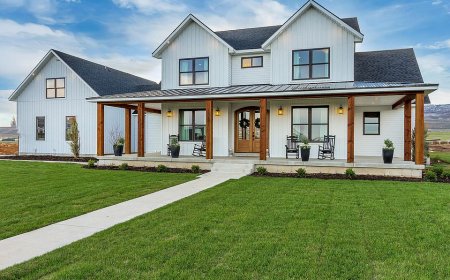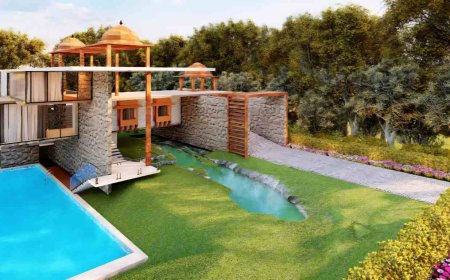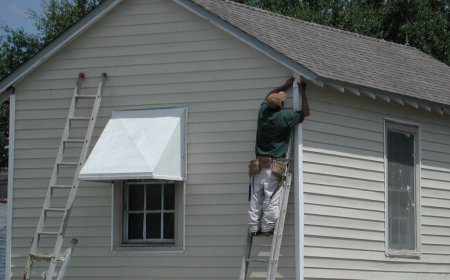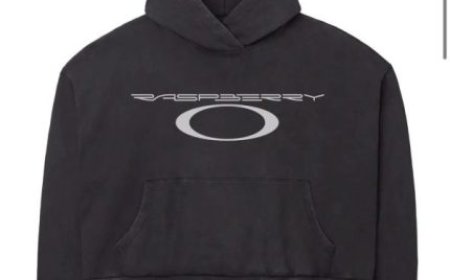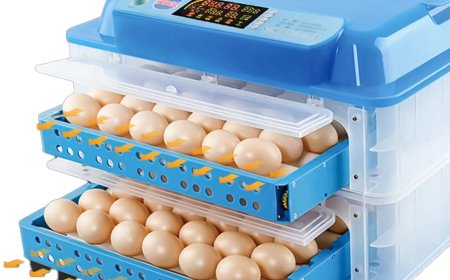Why Glass Office Partitions Fail in Dubai (And What Works Better)
Glass office partitions look great but often fail in Dubai. Discover smarter commercial interior design solutions that balance style and function.

In the competitive landscape ofcommercial interior design Dubai offers, glass partitions have long been the go-to for modern office aesthetics. Their transparent elegance, ability to create the illusion of space, and sleek appearance once symbolized cutting-edge corporate design. However, many businesses in Dubai are beginning to realize that glass walls dont always support the cultural, functional, or environmental needs of a productive workspace.
The Original Appeal of Glass Partitions
When open-plan offices surged in popularity, glass became a favorite material among designers and corporate clients alike. It promised openness, transparency, and collaboration. Employees would be able to see each other, feel more connected, and avoid the isolation of cubicle-style layouts.
Transparency Equals TrustOr Does It?
The assumption was simple: when people can see each other, theres a natural rise in trust and accountability. In reality, however, visibility can also lead to discomfort, constant surveillance, and performance anxiety. For many workers, especially in a culturally diverse city like Dubai, being observed all day can be more distracting than motivating.
Why Glass Fails in Dubais Office Culture
Dubais workplace culture is shaped by international talent, conservative values, and climate-specific concernsall of which influence the effectiveness of interior design choices.
Lack of Privacy
Glass partitions, by nature, offer very little visual privacy. In environments where discretion is crucialwhether for client meetings, HR discussions, or focused individual workglass walls simply fall short.
In some workplaces, particularly those with hierarchical structures or gender-sensitive dynamics, visual barriers are not just preferred but expected. Glass fails to meet these needs without expensive add-ons like frosting, blinds, or smart glass technologies.
Climate and Glare Issues
Dubais abundant sunshine is a beautiful feature of the city, but when combined with glass interiors, it leads to increased glare and uncomfortable temperature spikes. Glass partitions often exacerbate air conditioning loads and uneven climate control.
Employees working in glass-encased rooms often complain about excessive brightness, screen glare, and inconsistent temperaturesfactors that contribute to fatigue and reduced productivity.
Noise Amplification
Contrary to popular belief, glass doesnt contain sound well. In fact, it tends to reflect noise, causing echoes and poor acoustics. This becomes a major problem in bustling offices, where conversations and phone calls travel easily through glass walls, disrupting focus and concentration.
What Works Better Than Glass in Dubai Offices
As the limitations of glass become more apparent, companies are exploring smarter alternatives that balance aesthetics with functionality.
Acoustic and Visual Zoning with Modular Panels
Modular panel systems made of sound-absorbing materials such as fabric, wood veneer, or composite panels are gaining popularity.
Benefits of Modular Systems
-
Improved acoustics: These panels dramatically reduce sound transfer, creating quieter work zones.
-
Customizable aesthetics: Panels come in a variety of textures and finishes that still deliver a high-end look.
-
Flexibility: As teams expand or change, modular systems can be rearranged.
Semi-Transparent or Frosted Materials
Where a level of openness is still desired, semi-transparent materials such as frosted acrylic or patterned glass offer a balance.
Strategic Visual Softness
These materials soften the space visually without sacrificing privacy. They're especially useful in meeting rooms or executive offices where some discretion is required, but total isolation isnt necessary.
Green Partitions and Biophilic Dividers
One of the biggest trends in commercial interior design Dubai professionals are adopting is biophilic designbringing nature into the workplace.
Benefits of Green Partitions
-
Natural sound dampening
-
Improved air quality
-
Increased employee well-being and focus
Living walls or plant-based dividers act as natural buffers while offering a calming, productive environment.
Movable Acoustic Pods
Acoustic pods are enclosed, freestanding units designed for private work or meetings. Unlike traditional conference rooms, theyre portable and don't require permanent construction.
Why Pods Work in Dubai
-
They solve the privacy issue without major renovations
-
Offer superior sound insulation
-
Are perfect for hybrid work setups and agile teams
Combining Transparency and Functionality
Instead of fully committing to glass or fully opaque dividers, smart design blends both.
Layered Design Approach
-
Glass on top, solid base: Offers privacy while still allowing light
-
Textured films or patterns: Add visual interest and reduce visibility
-
Color zoning: Use colors to subtly guide activity zones, enhancing spatial organization
Cultural and Behavioral Sensitivities
In Dubais multicultural workspaces, respect for personal space, gender considerations, and privacy vary widely. Office layouts and partitions must account for this diversity.
Customization Is Key
Rather than one-size-fits-all solutions like full-glass offices, modern designs now focus on adaptive configurations that cater to a variety of needsintroverted employees, collaborative teams, and culturally sensitive layouts.
Rethinking Design Priorities
Businesses in Dubai are becoming increasingly aware that design must serve productivity, comfort, and culturenot just aesthetics.
Feedback-Driven Adjustments
Designers now engage employees through surveys and interviews to understand pain points. Whether it's noise, lack of privacy, or discomfort due to lighting, these insights drive better spatial planning.
Evolving Office Functions
With hybrid work arrangements, office space is changing. Layouts must now support occasional collaboration, video conferencing, and quiet focus rather than constant occupancy.
Conclusion: Design Beyond the Surface
While glass partitions offer a modern visual appeal, they often fail in delivering what Dubais workspaces truly need: comfort, flexibility, and respect for privacy. By rethinking layout strategies and embracing adaptable, sound-conscious materials, commercial interior design Dubai professionals can craft environments that empower peoplenot distract them.
What works best today is a holistic approach that integrates aesthetics with acoustics, climate control, and cultural sensitivitycreating offices that not only look great but work better in every way.





